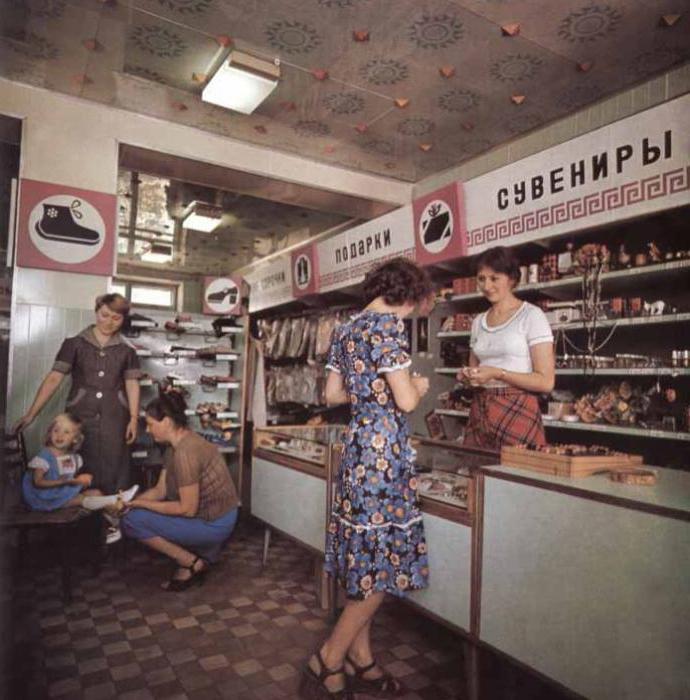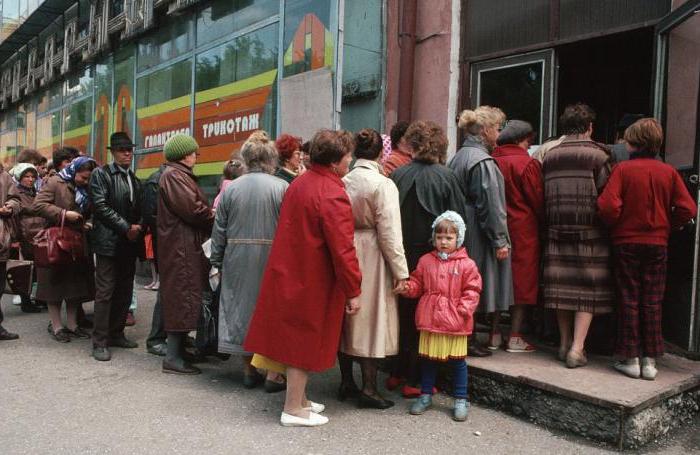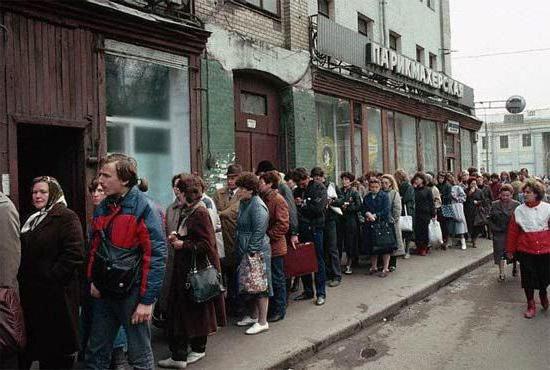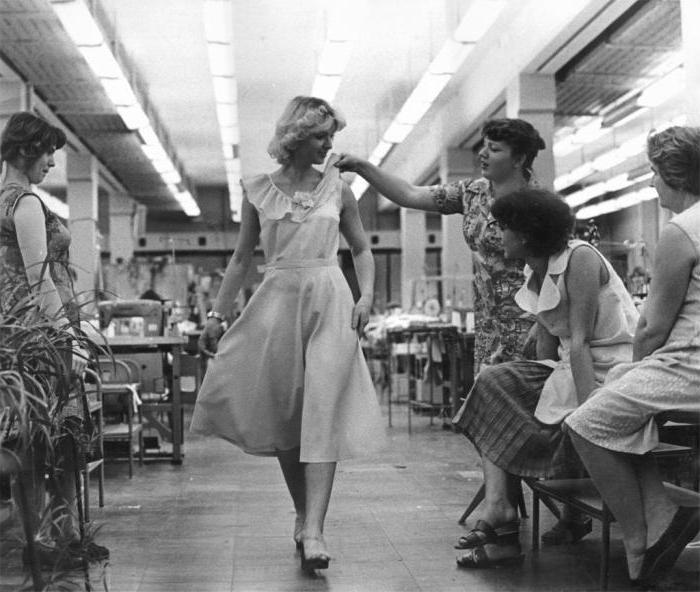The ability to carry out entrepreneurial activity is an essential component of any capitalist state. Perestroika in the USSR allowed a large number of people to put into practice their business ambitions. A number of regulatory acts drawn up at the end of the 80s contributed here. The adoption of the Law "On individual labor activity" was a turning point in the history of the Russian state. The population finally got the opportunity to freely buy and sell. This truly epoch-making law will be described in detail in the article.
History of Entrepreneurship in Russia
The October Revolution of 1917 determined the existence of cooperatives in the monopoly sector of the state. Private capital cooperations were then strictly prohibited. This policy led to significant degradation in the country's economic sector. On March 14, 1921, the policy of war communism was replaced by the New Economic Policy. The right to create consumer cooperatives appeared. It was these organizations that made it possible to pull the Soviet economy out of the deepest crisis.
During the period of collectivization, the collective farm was the ideal of a social cooperative in the USSR. This authority was tightly controlled by the state. The collective farm was a commercial type of cooperation. In 1956, the concept of cooperation completely disappeared. All households are included in the state system.
Perestroika Times
Perestroika in the USSR was marked by many different phenomena. Thanks to some of them, the entire economic structure of the country was, in fact, completely redrawn. However, the most striking event was, of course, the adoption of the Law "On Individual Labor Activities" on November 19, 1986. Soviet citizens were given the opportunity to carry out additional labor activities in their free time from their main job. A key feature of the law is permission for free labor. There was an opportunity to create production cooperatives where the use of hired labor would not be allowed.

Paradoxical as it may seem, the adoption of the law did not change the influence of communist power on cooperatives. The official legalization of the private economic sector was hostile to many government officials. So, in 1988, a decree was signed on the progressive taxation of all cooperative participants. The concept of "super-incomes" appeared - monetary amounts exceeding two average salaries. Such amounts were subject to seizure. A little later, the USSR Act "On Cooperation" was adopted, the norms of which significantly weakened the position of entrepreneurs. Moreover, it was the adoption of the Law "On Individual Labor Activities" that became a truly historical and famous event.
Who was allowed to do business?
The most important norms of the Law of the USSR "On individual labor activity" should be analyzed. First you need to find out exactly who had the opportunity to create cooperatives and receive money in their free time.
Section 3 of the Law allowed all citizens who have reached the age of majority to engage in individual work. Such persons should have been involved in social production in their free time. Unemployed citizens did not have the right to join cooperatives. Exceptions are students, senior citizens, people with disabilities and housewives.

People's deputies of the USSR recommended that citizens train their compatriots in individual entrepreneurship. The population should remember that it is allowed to work only with raw materials for the formation of consumer goods - the law says. State committees of the Soviet Union were also obligated to promote individual entrepreneurs.
Responsibilities of Individual Entrepreneurs by Law
The main duty of Soviet citizens who decided to form their own cooperative was to obtain special permission in the city, district or village council. The duration of the permit was only five years, after which the document had to be renewed. Citizens engaged in business without state permission were equated with speculators. Criminal punishment was established for speculation in the Union.
Article 8 defined the functions of citizens engaged in individual work. Here, everything is quite simple: you need to observe the rights of customers, take into account the interests of customers, etc. However, the main responsibility of the entrepreneur was to produce a quality product that meets all standards.
Cultural and craft industry
The law stipulated several public spheres where Soviet citizens would have the opportunity to engage in individual labor activities. The second chapter talked about the cultural and craft environment. What exactly was produced here?

The law answered briefly, and therefore is somewhat blurry. It was about handicrafts and crafts. However, article 12 supplemented the previous provisions. It indicated that under such products is meant, in fact, all household and household utensils. Clothing, shoes, toys, furniture, fabrics, ceramics, garden tools and much more - all this could be made and sold. Introduced the law and prohibitions on the manufacture of individual products.
Consumer services
Chapter 3 of the Individual Employment Act of 1986 talked about manufacturing products and promoting services in the domestic sector. What was meant by paid services? Section 15 of the Law indicated the following:
- repair and construction;
- grazing;
- improvement of territories and land plots;
- repair of furniture or household appliances;
- tailoring;
- photographing and filming;
- hairdressing services, as well as any beauty services (except medical);
- transport service;
- travel features and more.
All that previously was possible to implement only under strict state supervision, in 1986 became relatively free. The people have a real opportunity to do business. The state could only properly organize entrepreneurial activity to remove the economy from a state of stagnation.
Socio-cultural sphere
The last public sphere pointed to by the law was called socio-cultural. Article 18 of the Law enshrined the opportunity to provide paid services in the field of education and art. Learning to play musical instruments, tutoring, translation, medicine - from now on, all this could acquire a paid character. There was an opportunity to organize spectacular events - concerts and festivals.

The document, it would seem, allowed a lot. And this is true: in comparison with the complete ban on entrepreneurship that prevailed until 1986, the adoption of the Law "On individual labor activity" became a breath of fresh air for the state economy. However, the document still severely limited many public areas. It is enough to pay attention to article 19, which said about the prohibition of employment, which would be contrary to the interests of society. As you know, in the USSR, the interests of society were determined by the state.
Deficit
The adoption of the Law "On Individual Labor Activities" (year 1986) really helped the state economy. However, not everyone wants to admit it. What is the problem here? Why is the question of introducing entrepreneurship still so acute?

The origins of the problem lie in the Soviet deficit. If in the 60s store shelves were still at least somewhat filled, then in the following decades, an acute shortage of goods manifested itself especially painfully. The state could not dress and feed the people. That is why the last attempt was made to save the economic sector.
This attempt, it must be said, was contrary to all socialist principles and principles. However, entrepreneurship was a real salvation for the Soviet people. The “black markets” that spread throughout the country became legal. The people finally got the right to satisfy their needs in a legal way.
Cooperation
The effect of the Law "On Individual Labor Activities" has spawned many cooperatives throughout the Soviet Union. What were these organizations? There are really many examples. Two or more Soviet citizens enter into an agreement with each other, receive a five-year license from the state and open, for example, a barbecue. This often came from southern regions. A large number of Soviet women tried to create their own sewing production. Because of this, the country was filled with a considerable number of simple studios organized “on the knee”.

The Law on Individual Labor was adopted in November 1986. The people reacted incredibly quickly. Already in early 1987, the state was filled with a huge number of very different cooperations.
Disadvantages and advantages of the law
Both specialists and ordinary citizens are still trying to highlight the advantages and disadvantages of the law in question. I must say that the lesson is somewhat useless. Most of the highlighted minuses and pluses are extremely subjective, and therefore can not be considered even out of academic interest. Nevertheless, some advantages and disadvantages of the regulatory act are worth mentioning.
The indisputable minus of the adoption of the law was the rampant crime. Rather, the drawback here is not banditry itself as a phenomenon, but the impossibility or unwillingness of the authorities to fight it. There were citizens who wanted to cash in on someone else's work. "Protection" has spread - a way to levy tribute to entrepreneurs.

The following flaw of the law is extremely subjective. People who sympathize with the socialist system like to call him. We are talking about the collapse of a planned economy, which was officially laid the foundation for the law in question.
The regulatory act has many advantages, but only one is worth highlighting. The population of the USSR finally got the opportunity to feel like free citizens. A competent disposition of the freedom granted would help to build a society close to ideal. Did something similar happen between Soviet and now Russian citizens? Each person has an answer to this question.